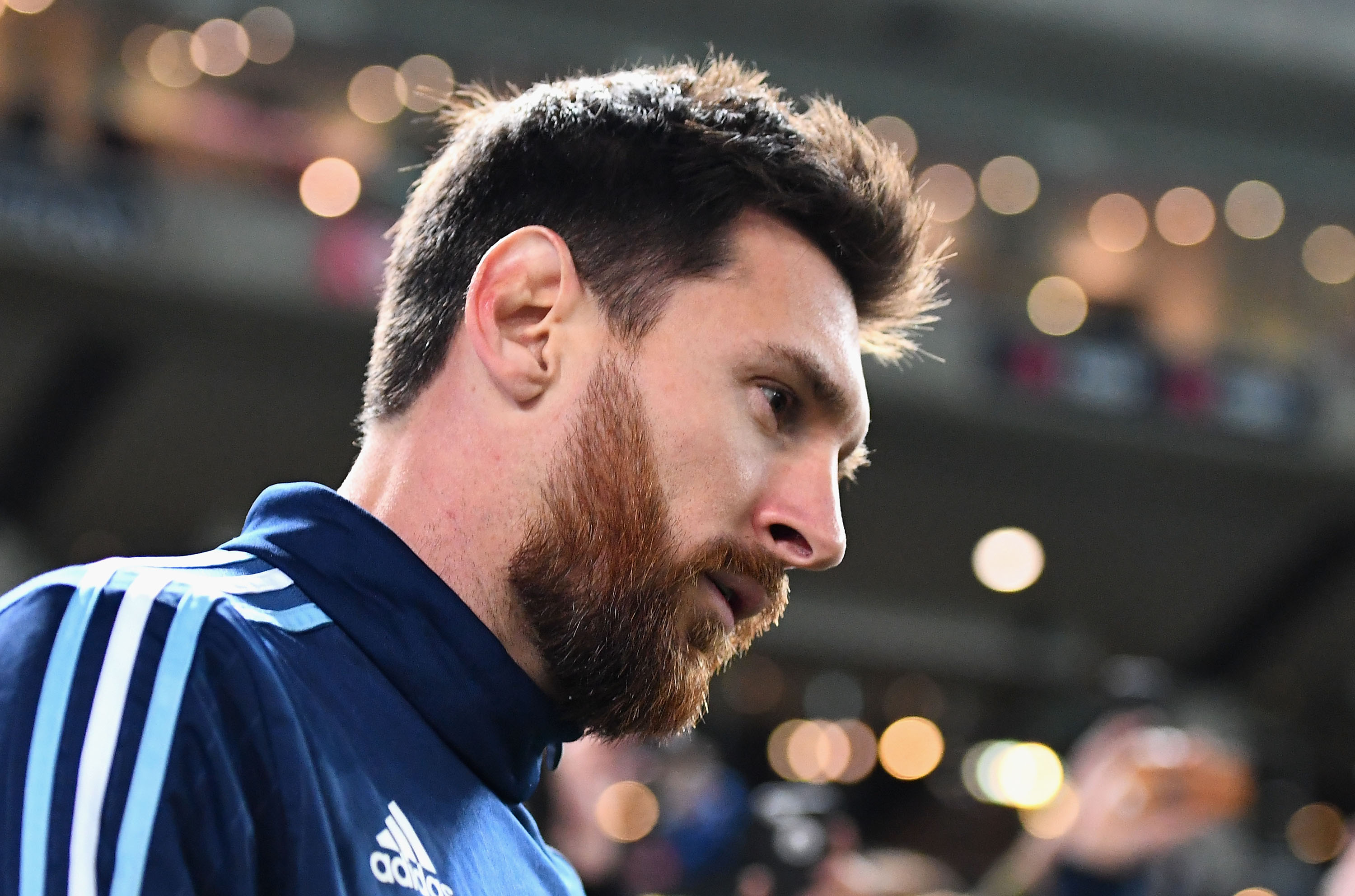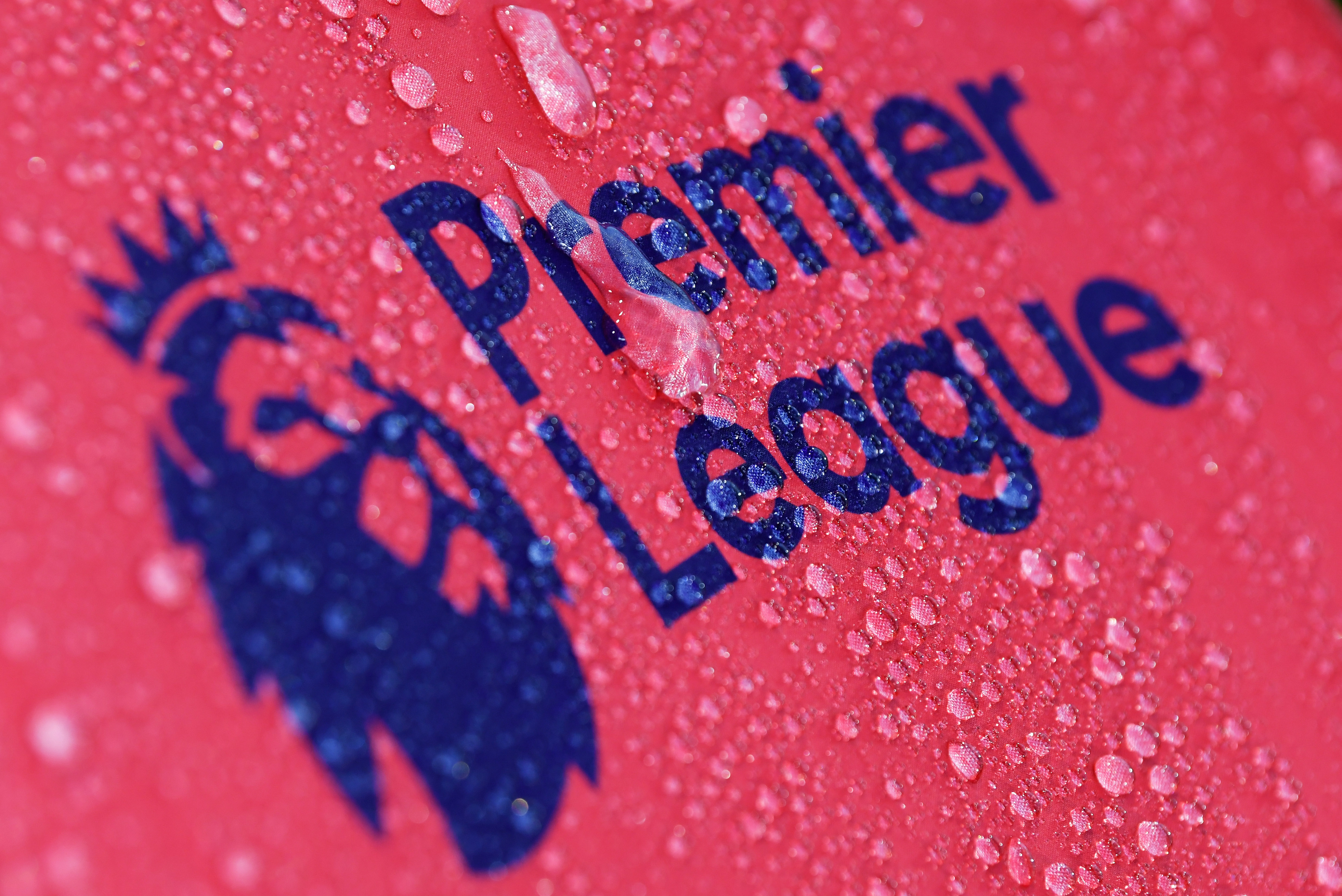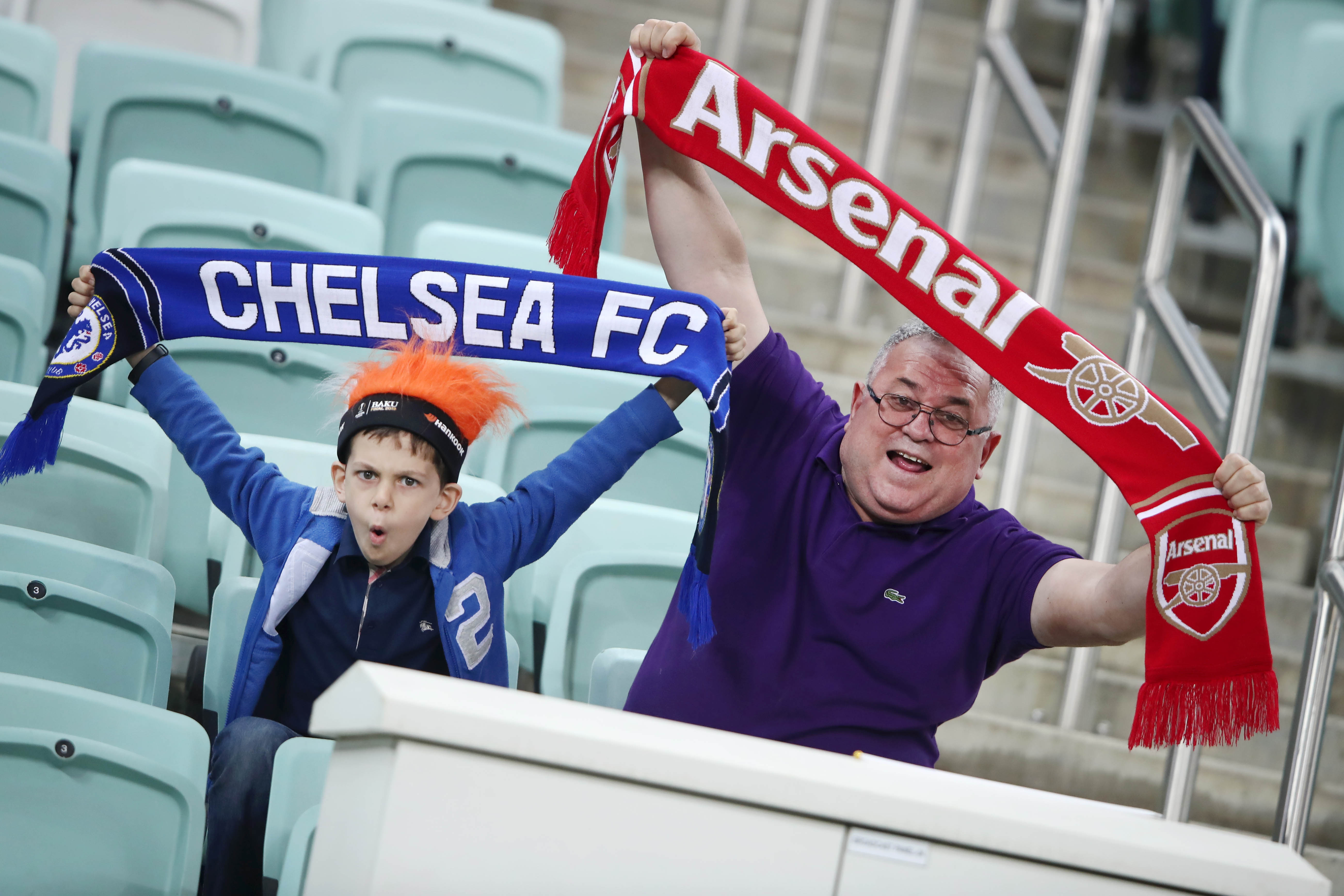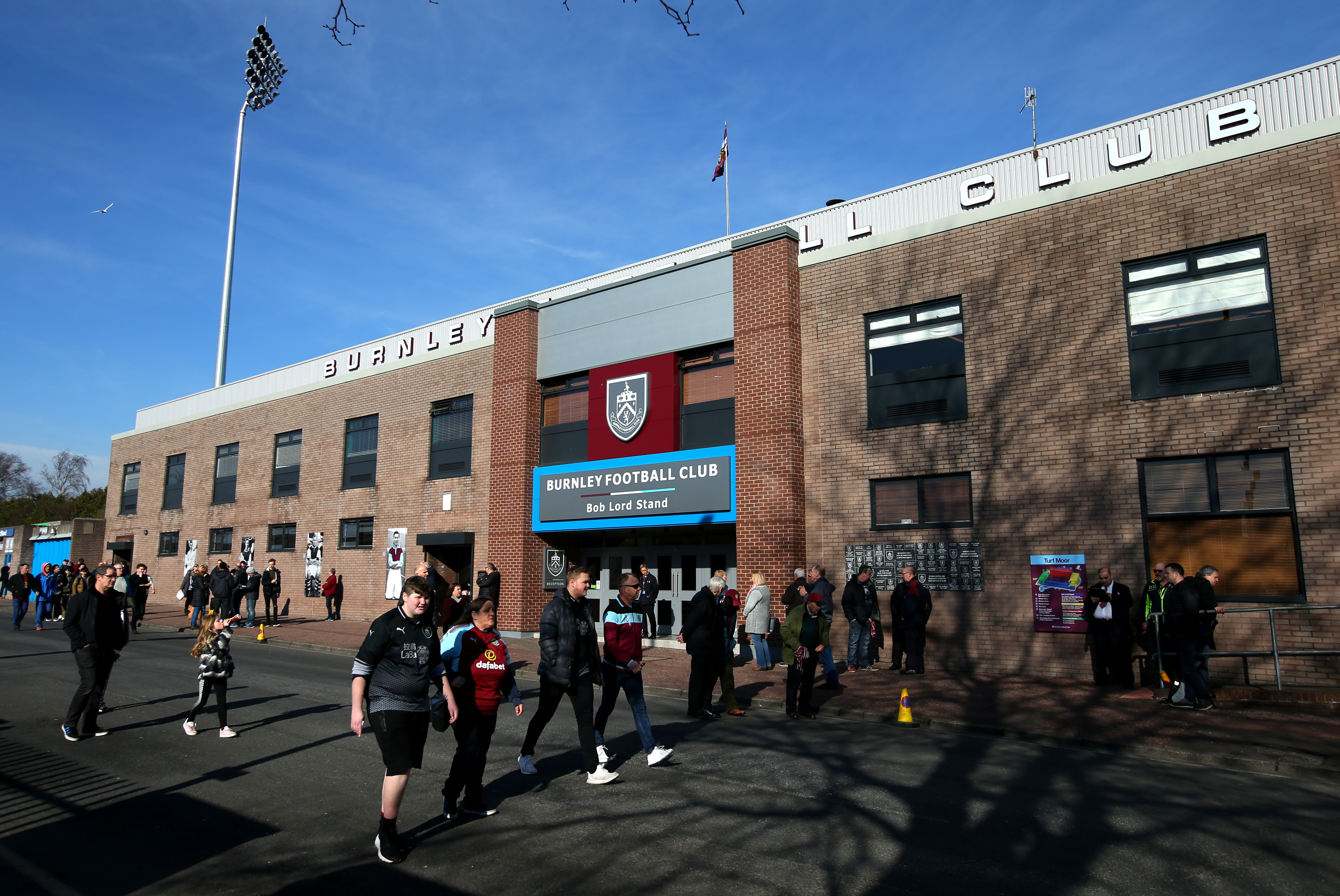This Sunday, the world comes to a halt. A certain Lionel Messi will have his final shot at ultimate glory. The man on a mission books a date with destiny. But can the Argentine wizard win the only major trophy missing from his illustrious CV to silence all critics and complete the fairytale ending?
This Sunday, Lionel Messi will spearhead Argentina in their bid to win the World Cup for the first time since the days of the late Diego Maradona, way back 36 years ago. And in so doing, he can put an end to a few long-running “ultimate GOAT” debates by hoisting the only trophy that has escaped him in his storied career.
The greatest football plotline is looming on the horizon: Lionel Messi returns in what will be his last World Cup match to conclude the unfinished business that he started in 2014 final. Similar to how the 1986 World Cup became known as Diego Maradona’s World Cup and Brazil’s Ronaldo Nazario wrote a redemption story in Yokohama with their 2002 victory, the 2022 edition is certain to become synonymous with Messi if he leads Argentina to victory over France.
Only Morocco doing the unthinkable would have been more appealing to the show’s viewers. Now that the Arab-African dream is over in valiant fashion, no one can dismiss the inevitable worldwide elation and sense of fulfillment and relief that a Messi World Cup triumph would deliver.
A sense of euphoria is in the air, not only amongst Argentina fans but in the whole footballing world. And it will be a joy to behold if the dream comes true for the little man from Rosario. But it is not all about Messi in the epic finale.
A host of intriguing Messi and Argentina-related storylines and sub-plots await in the final, and you are in luck as we, at The Hard Tackle are set to uncover them all ahead one of the most important games in Argentine football history and the biggest in Messi’s career.
Lionel Messi confirms that the World Cup final will be the last World Cup game he plays 🥺 pic.twitter.com/DzVcf1iv2p
— GOAL (@goal) December 14, 2022
Whether Lionel Messi wins the World Cup or not, his legacy in football will remain undeterred
Marvelous, magnificent, and magical. These are just a few of the superlatives that spring to mind to define Lionel Messi over the last 18 years. Throughout his career, the seven-time Ballon d’Or winner has achieved what many players could only dream of in their wildest dreams. However, there has usually been an asterisk in front of them.
That persistent sense that, while he had won everything with Barcelona and on an individual level, something was missing. That one trophy, which has so far proved beyond his reach—the World Cup. It is that one piece of silverware that many felt Messi must win to become the undisputed “Greatest of all time” and the GOAT of the GOATs.
Of course, such debates are completely subjective and among football’s most tiresome conversations. But the fact is that Messi does not need to win a World Cup to underline his greatness or to cement his status as one of the best players in history to ever kick a ball. The evidence has been staring us in the face for a long time.
Messi never needed the World Cup to prove his brilliance; this World Cup and football owe it to Messi to lift that elusive gold-plated trophy on the winner’s podium and take his crown atop the game’s greats. He never needed competition from Cristiano Ronaldo to be placed on the supreme GOAT pedestal. The stats, eye tests, game-changing moments, and sheer magic all point in only one direction.
In the opinion of Argentines, he is a close second to the late Diego Maradona, who guided Argentina to a World Cup triumph in 1986. This is despite Messi being by far the country’s all-time leading goal-scorer, having scored the most goals by an Argentine in World Cups and leading them to a Copa America and two World Cup finals (including this one).
For all his dazzling artistry through the years, what Messi did need was a World Cup in which he looked like the figurehead of an Argentina side, to be seen as the Messiah (a word that I still believe is coined to signify Messi’s greatness) pushing them towards a possible third world crown all on his own. Maradona accomplished it in 1986 and 1990, and Messi is certain to be compared to him for all the obvious reasons.
Messi's FIFA World Cup run is even more impressive when you compare it to the overall numbers of a great in Ronaldo 👀 pic.twitter.com/TkQzjrKBrg
— FOX Soccer (@FOXSoccer) December 16, 2022
In truth, Messi has only endured heartbreak with Argentina for much of his career. In the 2010 World Cup, he saw a number of his Barcelona teammates run away with it with Spain after La Albiceleste were knocked out in the quarter-finals by Germany. Four years later, it was a 113th-minute strike by Mario Gotze that kept him from lifting the top football prize at the last hurdle. And he walks past the vicinity of the trophy with only disappointment in his eyes to collect the Golden Ball award.
The less said about the 2018 tournament, the better, as it left him on the verge of early retirement from international football. It almost seemed the responsibility of being the “talisman” for Argentina and leading the way weighed heavily on Messi. But he seems at peace with it now. He powered them to the 2021 Copa America title, which came as a relief to a wider world, and he is now only one step away from ultimate glory.
While his eternal rival Cristiano Ronaldo contemplates a future without a World Cup medal and quite possibly in the deserts of the Middle East, Messi is still going strong. Heis not only on the cusp of complete and undoubted immortality in Argentina, but he is also just one win away from settling the GOAT debate once and for all.
It is telling that the Netizens are no longer debating who is the better player between Messi and Ronaldo. But the 35-year-old needs this one to dethrone the mythical legends of Pele and Diego Maradona.
Messi set to star in his last dance at World Cup final after Croatia heroics
Many sort of guessed PSG had not received the real version of Lionel Messi. He always looked a bit slow, looked to keep a low profile and hid away in big games. Unsure of his footwork and ability to get past people, we still do not know why he kept hitting the woodwork, whether it was for a bet with Cristiano Ronaldo or something else.
Now, though, the picture is becoming a bit clearer. Now we know why. It was a Messi lookalike playing at Parc des Princes. The original Messi, who departed Barcelona in August 2021, was sent to the football gods to recharge for the World Cup in 2022. Jokes aside, Messi has been resurgent this term for PSG after a sub-par 2021/22 season and has managed to prove people wrong that he can’t thrive outside Barcelona. Not homesick.
Even on the international stage, things have quickly started to change for the better, with Messi living up to his star status during the final World Cup of his career, his swansong and the last dance. As compared to previous tournaments, this incarnation of Messi seems far more aware of his importance for Argentina and a more fierce leader.
He is no more Mr. nice guy or Zen-like Buddha figure. He is the one who makes this team tick like clockwork, is a creative reservoir, and is at the heart of every play. But he still requires the right players to back him up. It is not that the prior generation were not talented enough. Messi himself has been part of some immensely gifted national squads. But none have been as influential, aggressive, and ready to go to war for their idol.
Lionel Messi really celebrated right in front of Louis van Gaal and the Netherlands bench 🥶 pic.twitter.com/5hu2D1tbG8
— ESPN FC (@ESPNFC) December 9, 2022
Here, he can count on Cristian Romero’s defensive prowess, Emiliano Martinez’s daring and charismatic goalkeeping, Lautaro Martnez and Julian Alvarez’s superb finishing, and Angel Di Maria’s creative brilliance. Last but not least, he has his devoted subordinate in the form of Rodrigo De Paul, who always seems to be the first on the scene if someone tries to physically dominate Messi.
All Messi needed was a moment of brilliance, which he had yet to produce in the knockout rounds of the World Cup. That play or goal the entire world would remember until the end of the world. Much akin to Maradona’s “Hand of God” or brilliant solo goal in the 1986 final against England. This led to Messi being dubbed “Pessi” (penalty-scorer Messi) by his detractors in the early rounds of the current World Cup. It finally arrived in the 69th minute of the semi-final against Croatia in the form of a brilliant assist.
Messi’s most impressive trick has always been meandering around the pitch at 0.01 mph, recharging his energy bar to full, and then bursting away. Pep Guardiola once remarked that Messi tries to find a weakness in the opposition’s backline during that time. However, in all senses, no one would recommend 35-year-old Messi to take on the best and most athletic defender of the 2022 FIFA World Cup, Josko Gvardiol, especially when an ageing Dejan Lovren is just 10 yards away.
You expect Messi to perform some type of wizardry to create space or to use his vision to execute a pass that no one else sees. At this age, you do not think he will take the young Croat to the cleaners with his trademark runs. But then, as we all know, Messi is Messi. He confronted the RB Leipzig defender head-on, as he seemed to take ten steps per second, leaving Gvardiol dumbfounded, attempting to match him step for step.
His innate talent, close control, and turn of speed with which he executed the drag back, a pirouette in the blink of an eye, with his legs pumping quicker than his heartbeat, just left Gvardiol motionless and plummeted his transfer value as the maestro dribbled around him with a dummy before putting it on a plate for Alvarez.
If you’re a coach, you tell Gvardiol that he did very well. Stood his ground, didn’t put his foot in, forced him outside, made sure not to foul. Everything you’re taught to do.
But then, in a few seconds, Lionel Messi destroys your entire belief systempic.twitter.com/u8eO1PNGhJ
— Luis Miguel Echegaray (@lmechegaray) December 14, 2022
The clip quickly went viral and broke the the internet. All scientists will be called to explain how such agility is possible for a veteran. Messi broke down all the limitations put on him by his critics. But sadly, the match-winning performance won’t end the debate, which will only happen if he wins the World Cup on Sunday.
He dragged his team all the way from obscurity after the opening-day defeat to minnows Saudi Arabia to the final, scored goals in the Round of 16, quarter-final, and semi-final. It is about damn he shines in the final!
The concern now is his left hamstring, which he gripped uncomfortably during the first half before attempting to shrug off. We will have to wait until Sunday to find out if three days was enough time to refuel his tank and weave his magic in the final. Lionel Scaloni will surely sweat over his talisman’s fitness.
The resurrection of “La Scaloneta” at the World Cup
When Lionel Scaloni took over from Jorge Sampaoli after the latter’s failures in 2018, only a few could have predicted what he has gone on to achieve. He assumed the Argentina role with no managerial experience and has since transformed the team’s mentality and playing style.
After winning the Copa America in 2021, they ended a 28-year drought. The Albiceleste became known as “La Scaloneta“, a kind of metaphorical van with Lionel Scaloni at the wheel. The term grew in popularity in the 35-match unbeaten run-up to the World Cup in Qatar, with Argentina considered one of the favourites to win the tournament.
With Scaloni in charge, Argentina’s reliance on Lionel Messi decreased. The 44-year-old head coach assembled a strong core of players who are not superstars but have workmanlike qualities, including the likes of Emiliano Martinez, Cristian Romero, Rodrigo De Paul, and Lautaro Martinez. They played exhilarating, free-flowing football with a patient build-up approach.
"No me puedo poner a la altura de Menotti, Bilardo o Sabella, pero me llena de orgullo estar acá. Dirigir la final va a ser un privilegio". Lionel Scaloni. pic.twitter.com/LG0Aq8qmcs
— VarskySports (@VarskySports) December 13, 2022
However, all that optimism and euphoria went down the drain when they began their World Cup campaign. Saudi Arabia gave the pre-tournament favouties a rude awakening, which pushed Argentina into a sort of territory in which they were not familiar – and prompted Scaloni to reconsider his tactics.
He went back to the drawing board and had to rip up the whole approach. Another issue that forced Scaloni into a rethink was the injury absence of Giovani Lo Celso, whose work ethic, ability to win second-balls and creativity was crucial for their style of play in the final third. In addition, experienced players like Papu Gomez, and Angel Di Maria did not deliver in that long afternoon.
There has been a lot of tweaking since then, and nearly all of it has worked to a tee. If Messi does not offer much pressure from the front, there needs to be more movement up front, which is why Julian Alvarez was brought in instead of the underperforming Lautaro Martinez.
Alvarez has made things tick more fluidly with his pressing, running on the wing and directness. Playing alongside hard-working wide players suits Messi, who spends a surprising amount of time at a walking pace, trying to work out the opponent.
Out went Gomez, and Alexis Mac Allister was introduced to fill in the Lo Celso role. In addition, Enzo Fernandez also started to become a prominent figure in midfield, providing not only youthful exuberance and legs but an attacking threat from the middle of the park.
With all that also returned the traditional battle-hardened South American mentality: to put the body on the line for every ball, fierce tackling, and the spirit to fight for each other until the end. They have dug deep into their reserves of resilience, courage, and self-belief to put themselves within one match of sporting immortality.
The Albiceleste have gotten better with every single game (except for their nerve-wracking 18-minute meltdown against the Dutch) and have done excellently to respond to what was a huge setback against Saudi Arabia and drag themselves to the brink of lifting the trophy after many had written them off.
They have shown they are capable of sitting back, suffer, soaking up pressure, then snapping into challenges and flying forward on the break, with Messi pulling the strings and the superb Julian Alvarez stretching opponent defences.
Of course, Messi’s magic played a pivotal role, but the team’s effort to cover for him and his never-say-die attitude cannot be understated. They were put through a ringer against the Dutch but eventually came out unscathed before delivering their best performance of the tournament against Croatia in the semi-final. They now face the ultimate test against the fearful French.
The ultimate test for Messi and Argentina
And then there were two. After a tournament full of twists, giant killings, raining braces, magical moments, goalkeeping brilliance, late-goal drama, heartbreaks, and tears a plenty, we have a mouthwatering finale between two sides who many anticipated would make it this far.
We do not need to tell La Albiceleste supporters how devastating Kylian Mbappe and France can be. Indeed, the summit showdown between reigning champions France and 2014 finalists Argentina will be a rematch of the last edition’s Round of 16 encounter, in which Mbappe led Les Blues to a 4-3 victory.
🇫🇷 France vs 🇦🇷 Argentina is going to be ELECTRIC! 🤩 pic.twitter.com/E7hF9BPvvO
— Betting The Pitch (@BettingThePitch) December 14, 2022
That storming 75-yard run from a 18-year-old Mbappe is still fresh in the memories of many, and haunts Argentina fans time and again. Millions and millions of football fans all over the world will be rooting for Argentina in the hopes that Messi will finally win a World Cup before retiring from the international scene. But Mbappe and company will say they are not here for vacations, and most certainly have other ideas.
It’s Lionel Messi vs. Kylian Mbappe, with the PSG teammates vying to be the star of the show.
With so many good players on both rosters, condensing a match with so many aspects to Messi vs. Mbappe is foolish. That is football Twitter, in short. But there is a lot at stake for both PSG teammates. A World Cup gold, a Golden Ball, and the Ballon d’Or are all on the line.
While Messi still boasts an innocent god-like, unassuming magician presence, Mbappe is a mischievous, scary child-like devil, and no less a French hit-man, who will be hunting to take down our beloved footballing angel, as he plans to win another, and another, and another, as well as smashing all records along the way, just like his old master, Ronaldo.
Back to tactics, Argentina must be wary of the deadly front four in the French attack, spearheaded by Oliver Giroud, who is really coming into his own in this tournament, with Mbappe as the centre of attraction and Antoine Griezmann as the chief creator for some reason.
Scaloni has to come up with a winning formula, which not many have been able to do against France. Past games have shown that France let you attack and dominate them, only to kill the opposition with their blistering pace and scoring in crucial moments.
Didier Deschamps, France’s manager, will undoubtedly be concerned about the left side of his defence, as Mbappe does not really drop back to support and full-back Theo Hernandez is aggressive and can be exposed by deft wingers.
Messi, unsurprisingly, will be the focal point of Scaloni’s side. An adept reader of the game, he will identify open spaces and exploit the vulnerability, and Angel Di Maria will very certainly be introduced at some point to spark up the game.
Centre-backs Nicolas Otamendi and Cristian Romero will be pushed to their limits, particularly Romero, who will provide protection on the side of the field where Mbappe make infiltrating runs.
Will Scaloni restore Lisandro Martinez and go back to a three-man defence or bring back defensive midfielder Leandro Paredes or Guido Rodrigues into the lineup? These are the questions that are living rent-free in every Argentine fan’s mind, until Sunday.
The Argentina head coach will almost certainly devise a plan, which begs the intriguing question of how well the team will implement that to nullify the world champions, who will use every ounce of their knockout experience and exceptional record.
Les Blues do not know when they were last beaten in a knockout World Cup game and are masters, having made it to four finals in last seven World Cup since 1998. However, there’s a feeling of destiny and doing it for Messi when it comes to this battle-hardened Argentine side. France might be well-equipped to frighten anyone, but La Scaloneta and Messi fear none.





